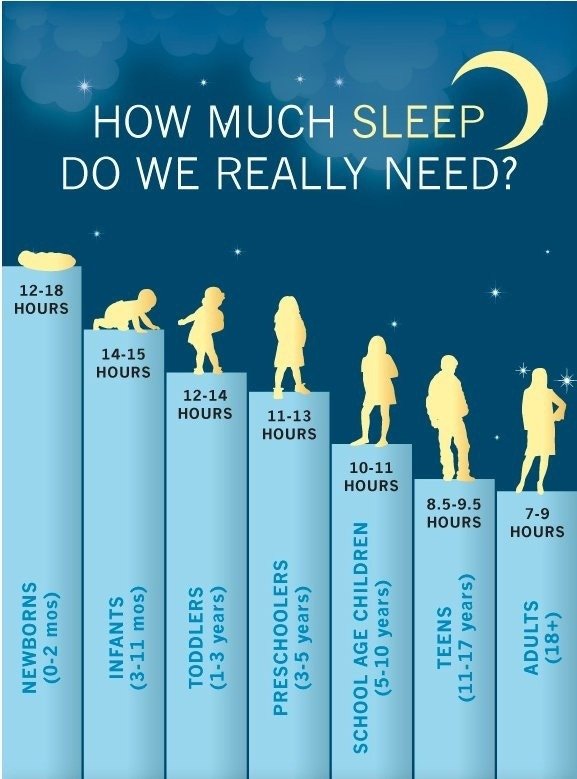
The number of sleep hours needed by the human body varies from one person to another and depends on many factors, including age. The following table shows the number of hours recommended for each age group: [1]

There are also other factors that may have a role in the number of hours of sleep needed by humans, including: [1] Pregnancy: Especially in the early stages of pregnancy, where physical changes may increase the need for sleep. Aging: Sleep patterns may change as you age, older people may sleep less deeply and for a shorter period of time. Pre-sleep deprivation: The need for sleep increases when a person is exposed to certain conditions that may prevent him from sleeping. Sleep quality: Intermittent sleep is one of the reasons for increasing the need for sleep. Side effects of poor sleep Lack of sleep leads to depletion of mental energy, and physical health may be at great risk. It has been scientifically found that sleep deprivation is associated with many types of physical illness. For example, lack of sleep affects many functions of the nervous system and the immune system. Immune system, and lead to many chronic diseases such as diabetes and heart disease . [2] Tips for sleeping better The number of hours we sleep is very important, so is its quality. Here are some tips to help you improve your sleep: [3] Follow a regular sleep schedule: Sleeping at the same time daily helps to regulate the biological clock. An irregular sleeping system has been associated with twice as much sleep duration and quality. Create a calm atmosphere: Adopting a relaxed sleep pattern helps stimulate sleep. For example, listening to quiet music before sleep improves the quality of sleep in some groups. Create a comfortable perimeter: Sleeping in a quiet, dark room at an appropriate temperature helps sleep better. Reduce intake of caffeine, alcohol and nicotine: Studies have shown that consumption of caffeine , alcohol and nicotine is reflected on the quality of sleep, so caffeine should be avoided in the afternoon and evening. Minimize the use of electronics: The excessive use of mobile phones and other electronic devices weakens the quality of sleep, as is the case when exposed to bright lighting before going to sleep. Active lifestyles: Studies have shown that an inactive lifestyle is associated with a relatively weaker sleep quality, as opposed to an active pattern, which in turn may help improve sleep quality.